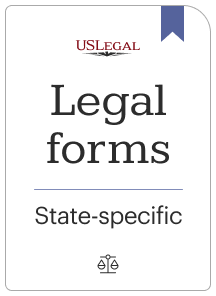

A receipt and a release by a distributee or legatee are prudent devices for a personal representative to protect himself or herself from subsequent claims. However, a distributee's rights may not be cut off by his or her execution of a receipt where the p Maryland Receipt and Release Personal Representative of Estate Regarding Legacy of a Will is a legal document that signifies the transfer of assets and the settlement of an estate in Maryland. This document is typically used when the named personal representative, also known as the executor or administrator, has completed their duties and is ready to distribute the assets to the beneficiaries named in the will. The Receipt and Release document serves as evidence that the personal representative has fulfilled their responsibility, and it provides protection to the personal representative from any future claims or disputes regarding the distribution of assets. It also acts as a formal acknowledgment by the beneficiaries that they have received their respective legacies as stated in the will. There are several types of Receipt and Release forms in Maryland, depending on the specific circumstances of the estate: 1. Receipt and Release in Full Satisfaction: This form is used when all beneficiaries are in agreement that their legacies have been properly distributed and no further claims will be made against the estate. 2. Partial Receipt and Release: In cases where only partial distribution has been made, this form is used to acknowledge the receipt of the current distribution while allowing for potential future claims. 3. Specific Legacy Receipt and Release: This type of Receipt and Release is used when a specific asset or property is left to a beneficiary. It confirms the transfer of the specified item or asset to the beneficiary. 4. Residuary Legacy Receipt and Release: If a beneficiary is entitled to receive a share of the remaining assets after all debts and expenses have been paid, this form is used to confirm the receipt of the residual distribution. It's important to note that the Maryland Receipt and Release Personal Representative of Estate Regarding Legacy of a Will should be executed with the guidance of an attorney to ensure it complies with the specific requirements of Maryland state law. Consulting an attorney can help personalize the document based on the particular circumstances of the estate and ensure that all necessary details and information are included for a valid and legally binding receipt and release.
Maryland Receipt and Release Personal Representative of Estate Regarding Legacy of a Will is a legal document that signifies the transfer of assets and the settlement of an estate in Maryland. This document is typically used when the named personal representative, also known as the executor or administrator, has completed their duties and is ready to distribute the assets to the beneficiaries named in the will. The Receipt and Release document serves as evidence that the personal representative has fulfilled their responsibility, and it provides protection to the personal representative from any future claims or disputes regarding the distribution of assets. It also acts as a formal acknowledgment by the beneficiaries that they have received their respective legacies as stated in the will. There are several types of Receipt and Release forms in Maryland, depending on the specific circumstances of the estate: 1. Receipt and Release in Full Satisfaction: This form is used when all beneficiaries are in agreement that their legacies have been properly distributed and no further claims will be made against the estate. 2. Partial Receipt and Release: In cases where only partial distribution has been made, this form is used to acknowledge the receipt of the current distribution while allowing for potential future claims. 3. Specific Legacy Receipt and Release: This type of Receipt and Release is used when a specific asset or property is left to a beneficiary. It confirms the transfer of the specified item or asset to the beneficiary. 4. Residuary Legacy Receipt and Release: If a beneficiary is entitled to receive a share of the remaining assets after all debts and expenses have been paid, this form is used to confirm the receipt of the residual distribution. It's important to note that the Maryland Receipt and Release Personal Representative of Estate Regarding Legacy of a Will should be executed with the guidance of an attorney to ensure it complies with the specific requirements of Maryland state law. Consulting an attorney can help personalize the document based on the particular circumstances of the estate and ensure that all necessary details and information are included for a valid and legally binding receipt and release.